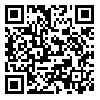BibTeX | RIS | EndNote | Medlars | ProCite | Reference Manager | RefWorks
Send citation to:
URL: http://ijict.itrc.ac.ir/article-1-214-en.html
Channel characterization is an important step in the design of wireless communication systems. While channel sounding procedures are a useful method in determining channel behavior, they also require expensive and time consuming procedures and equipment. Ray tracing has been an important substitute for measurement in deterministic channel modeling and characterization of the wireless channel. Much has been done to improve the precision and efficiency of this method for lower frequency bands (generally below 5 GHz) over the years. Recently, with the worldwide announcement of a broad unlicensed band in the millimeter wave spectrum around 60 GHz, a great amount of attention has been paid to this frequency band, previously considered un-utilizable ([I, 21). However some basic dissimilarity between the 60 GHz and UHF bands has brought about the need for modification of the methods previously used. In this paper the focus has been placed on two propagation mechanisms: diffraction and rough surface scattering, and the impact of each on over-all channel response predictions have been investigated.
| Rights and permissions | |
 | This work is licensed under a Creative Commons Attribution-NonCommercial 4.0 International License. |




